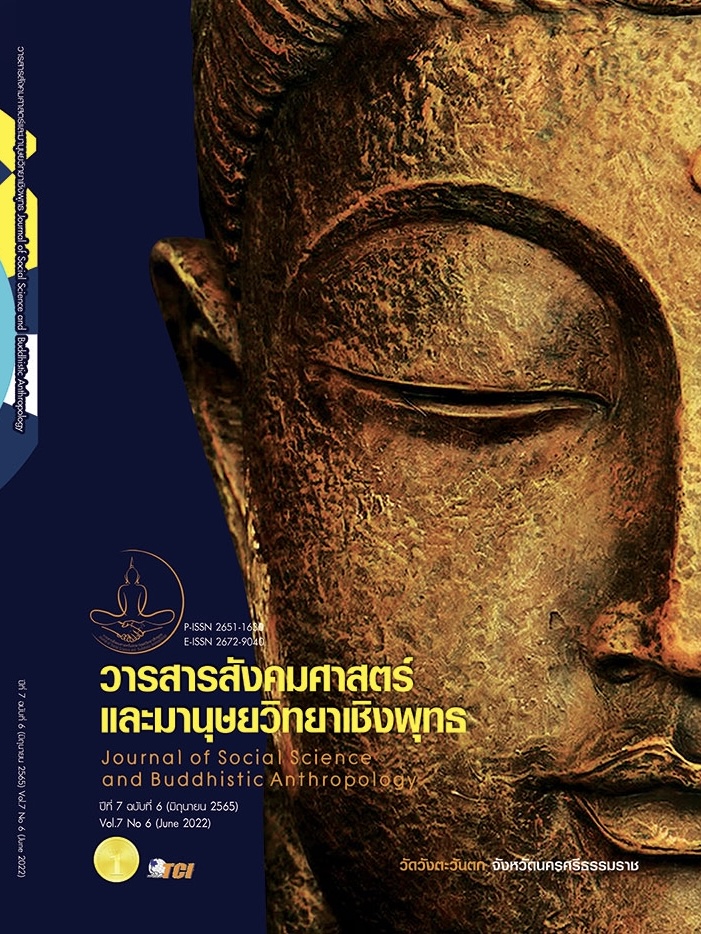AN EVALUATION AND FOLLOW UP OF EDUCATION IN BACHELOR OF ARTS PROGRAM IN CHRISTIAN THEOLOGY, CHRISTIAN UNIVERSITY OF THAILAND
Keywords:
Program Evaluation, CIPP Model, Christian University of ThailandAbstract
The objectives of this research article were to evaluate the Bachelor of Arts program in Christian Theology of Christian University of Thailand, in the context, input factors, process of the program, and the productivity of the program. This research was evaluation research by using CIPP Model. The population was the professors of the program, students, graduates, and graduate’s employers, in total of 124 people. Four questionnaires were used as a 5-level estimation scale and analyzed by frequency distribution statistics, namely the percentage, mean and standard deviation. The research results were found that the overall picture of the Bachelor of Arts program, in Christian Theology of Christian University had the highest score on the appropriate of the program. When considering each aspect, it was found that the areas with the mean score from highest to lowest were as followed: 1) The context of the program aspect had the highest average score ( = 4.71). The areas with the mean score from highest to lowest were the objectives, the subjects, and the structure of the program, 2) The process of the program aspect had a high average score (
= 4.49). The areas with the mean score from highest to lowest were the group of the professors of the program, the student group, graduate group, and the graduate employer’s group, 3) The input factors of the program aspect had a high average score (
= 4.36). The areas with the mean score from highest to lowest were the group of the professors of the program, graduate group, and the student group, and 4) the overall productivity aspect was at a high level (
= 4.24), which all groups had the overall average score at a high level.
References
กรภัสสร อินทรบำรุง. (2558). การประเมินหลักสูตรศึกษาศาสตรบัณฑิต สาขาวิชาการศึกษาปฐมวัย คณะศึกษาศาสตร์ มหาวิทยาลัยศิลปากร. วารสารวิชาการ ฉบับภาษาไทย, 8(1), 700-713.
กระทรวงศึกษาธิการ. (2563). แนวทางการพัฒนาระบบการประกันคุณภาพการศึกษาตามกฎกระทรวงการประกันคุณภาพการศึกษา พ.ศ. 2561. กรุงเทพมหานคร: เอ็น. เอ. รัตนะเทรดดิ้ง.
ทนงศักดิ์ โพธิ์เกตุ. (2563). การประเมินโครงการโรงเรียนส่งเสริมสุขภาพระดับเพชร โรงเรียนบ้านดอนแยง สำนักงานเขตพื้นที่การศึกษาประถมศึกษาเชียงราย เขต 4. วารสารสังคมศาสตร์และมานุษยวิทยาเชิงพุทธ, 5(10), 287-300.
บุญเลี้ยง ทุมทอง. (2553). การพัฒนาหลักสูตร. กรุงเทพมหานคร: สำนักพิมพ์แห่งจุฬาลงกรณ์มหาวิทยาลัย.
มาเรียม นิลพันธุ์. (2555). การประเมินหลักสูตรศึกษาศาสตรมหาบัณฑิต สาขาวิชาหลักสูตรและการนิเทศ คณะศึกษาศาสตร์ มหาวิทยาลัยศิลปากร . ใน รายงานวิจัย. มหาวิทยาลัยศิลปากร.
มูฮามัสสกรี มันยุนุ และคณะ. (2556). การประเมินหลักสูตรสถานศึกษาแบบบูรณาการอิสลามโรงเรียนหาดใหญ่วิทยาคารโดยใช้รูปแบบการประเมิน CIPP Model. วารสาร AL-NUR บัณฑิตวิทยาลัย, 8(14), 9-25.
ระพีพัฒน์ หาญโสภา และคณะ. (2563). การพัฒนาทักษะการเรียนรู้ในศตวรรษที่ 21 สำหรับโรงเรียนร่มโพธิ์ทองธรรมวิทย์. วารสารสังคมศาสตร์และมานุษยวิทยาเชิงพุทธ, 5(11), 18-31.
วชิระ จันทราช. (วชิระ จันทราช). การประเมินหลักสูตรศึกษาศาสตรบัณฑิต สาขาวิชาภาษาอังกฤษคณะศึกษาศาสตร์ มหาวิทยาลัยศิลปากร. ใน รายงานวิจัย. มหาวิทยาลัยศิลปากร.
วิชัย วงษ์ใหญ่. (2554). การพัฒนาหลักสูตรระดับอุดมศึกษา. กรุงเทพมหนคร: อาร์แอนด์ปริ้น.
ศักดิ์ศรี ปาณะกุล. (2555). การประเมินหลักสูตร (พิมพ์ครั้งที่ 7). กรุงเทพมหานคร: สำนักพิมพ์มหาวิทยาลัยรามคำแหง.
ศิริชัย กาญจนวาสี. (2553). การประเมินหลักสูตร: หลักการและแนวปฏิบัติ. เรียกใช้เมื่อ 12 สิงหาคม 2562 จาก http://www.edu.tsu.ac.th/major/eva/files/journal/
สำนักงานรับรองมาตรฐานและประเมินคุณภาพการศึกษา (องค์การมหาชน). (2554). การประเมินคุณภาพการศึกษา ใน รายงานสืบเนื่องการประชุมวิชาการ
ปี สมศ ทิศทางการประเมินคุณภาพภายนอกรอบสาม (พ.ศ. 2554-2558) (น. 7). กรุงเทพมหานคร: สำนักงานรับรองมาตรฐานและประเมินคุณภาพการศึกษา (องค์การมหาชน).
สำราญ มีแจ้ง. (2558). การประเมินโครงการทางการศึกษา: ทฤษฎีและปฏิบัติ. พิษณุโลก: คณะศึกษาศาสตร์มหาวิทยาลัยนเรศวร.
สำเริง อ่อนสัมพันธุ์. (2560). การประเมินหลักสูตรศึกษาศาสตรมหาบัณฑิต สาขาวิชาการบริหารการศึกษา. วารสารศิลปากรศึกษาศาสตร์วิจัย, 9(1), 12-27.
อิศเรศ พิพัฒน์มงคลพร และคณะ. (2556). การประเมินหลักสูตรศึกษาศาสตรบัณฑิต สาขาวิชาการประถมศึกษา คณะศึกษาศาสตร์ มหาวิทยาลัยศิลปากร. ใน รายงานวิจัย. มหาวิทยาลัยศิลปากร.
Madaus, G. F. & Stufflebeam, L. S. D. (1988). Education Evaluation: Classic Works of Ralph W. Tyler. London: Kluwer Academic Publishers.
Stufflebeam, D. L. & Cortn, L. S. C. . (2014). Evaluation theory, models & applications. Evaluation theory, models & applications: Jossey-Bass.
Stufflebeam, D. L. & Shinkfied, A. J. (2007). Evaluation theory, models & applications. CA: Jossey-Bass.
Downloads
Published
How to Cite
Issue
Section
License
Copyright (c) 2022 Journal of Social Science and Buddhistic Anthropology

This work is licensed under a Creative Commons Attribution-NonCommercial-NoDerivatives 4.0 International License.









